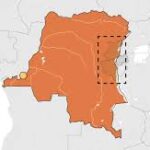Saied, a 66-year-old former law professor, has been a polarizing figure since assuming the presidency in 2019. His anticipated victory is expected to decisively defeat his main challengers, Ayachi Zammel, a political figure currently imprisoned, and Zouhair Maghzaoui, a leader within the opposition movement.
Despite his strong electoral showing, Saied has faced mounting criticism from human rights organizations and democratic advocates, who accuse him of steering Tunisia towards authoritarianism. Since July 2021, when he controversially suspended parliament and assumed near-total executive powers, Saied has governed largely by decree. His critics argue that his actions undermine the democratic gains made since the 2011 revolution, which toppled the long-standing dictatorship of Zine El Abidine Ben Ali and ignited the Arab Spring.
Also Read: Tabora Authorities Rescue 13-Year-Old from Illegal Trafficking
Human rights groups have expressed concerns about Saied’s leadership, highlighting his concentration of power and crackdowns on political opponents. They argue that the president has systematically weakened Tunisia’s democratic institutions, sidelining the judiciary, and eroding checks and balances that once provided oversight of the executive branch. His critics accuse him of using anti-corruption campaigns and judicial reforms as tools to suppress dissent.
Saied, however, defends his actions as necessary to restore order and eradicate corruption in Tunisia’s political system. He insists that his moves are in response to widespread public frustration with the political class, which many Tunisians blame for years of economic stagnation, rising unemployment, and political instability. Saied’s supporters, who see him as a strong, independent leader, believe he is steering Tunisia back towards stability after years of ineffective governance by multiple coalition governments.
The Independent High Authority for Elections (ISIE) has reported that around 9.7 million citizens were eligible to vote in the election. With a population of approximately 12 million, Tunisia’s low voter turnout suggests widespread political apathy and disillusionment with the current state of affairs. Many voters, particularly younger Tunisians, have expressed frustration at the lack of meaningful political choices, with some viewing Saied’s rule as a return to the old patterns of centralized power and repression that characterized the pre-revolutionary era.




Spot on with this write-up, I really assume this web site needs rather more consideration. I’ll probably be once more to learn much more, thanks for that info.